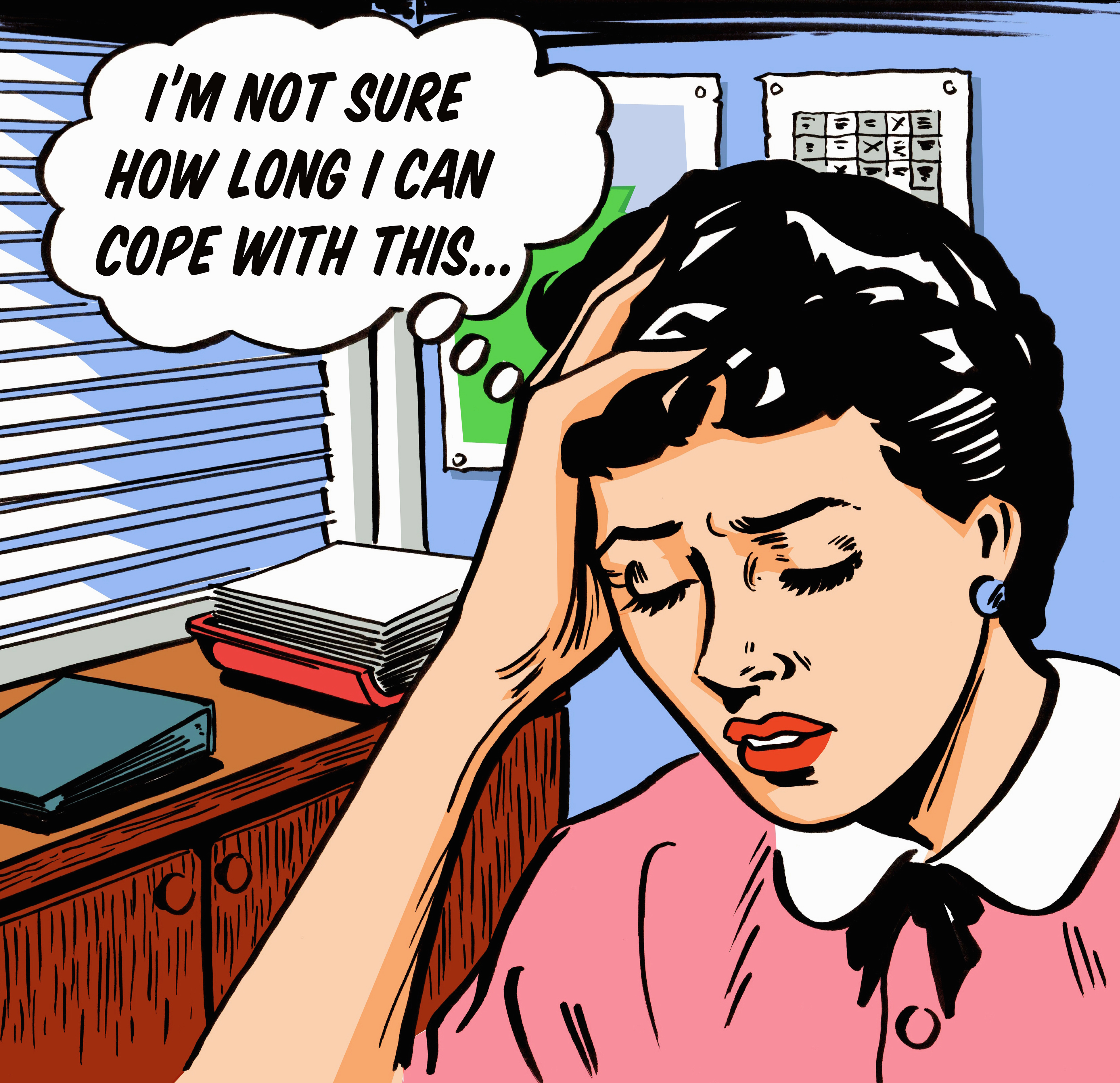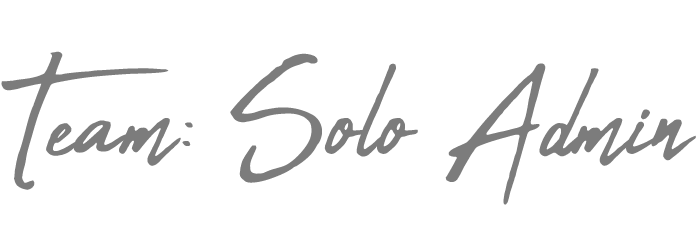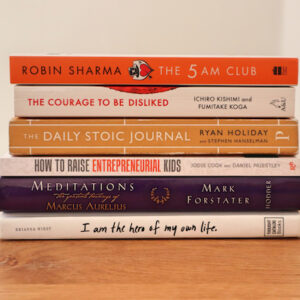Are you feeling exhausted, overwhelmed, and emotionally drained? If so, you may be experiencing burnout – a state of chronic stress that affects many people in today’s fast-paced world. The good news is that burnout is not a permanent condition, and there are ways to overcome it.
In a previous post, I touched on some coping strategies that I tried in the past. However, in this blog post, I will share my personal journey of how I recognized burnout in my administrative role so I could start to regain control of my life. If you feel like you might be experiencing burnout, then hopefully this will resonate with you.
Physical Exhaustion

One of the first signs of burnout was physical exhaustion. I struggled to make my body work. Struggling to get out of bed every morning and hitting snooze on my alarm was the norm. I was barely making it into work on time. I remember saying to a work bestie that walking into work felt like I was trudging through a thick swamp with every step I took.
I felt physically exhausted before I even I walked into work.
Does this sound familiar? If so, you might be experiencing burnout. And no, just one day of feeling like this doesn’t count. I mean, you’ve been feeling like this for weeks, months, or years.
Does the thought of going to work make you feel exhausted? Try this. Close your eyes and think about going in to work right now. I’ll wait…
** hums jeopardy song**

Welcome back! Did thinking about work make you feel like your soul was dying? Did you have to take a deep breath? Did you feel like a huge heavy cloud was start to descend upon you? Show any signs of exasperation? Because I did! I realized that my body was trying to tell me, “Enough is enough.”
Constantly feeling tired, both mentally and physically, is common. Other physical symptoms of fatigue can also include experiencing frequent headaches or body aches.
Your body is telling you it needs rest and rejuvenation. Ignoring these signs can lead to a further decline in your overall well-being.
Emotional Drain
At Work
Another significant sign of burnout in my administrative role I experienced was emotional drain. After a while, I noticed I was feeling more irritable, moody, or emotionally sensitive than usual. Tasks that used to bring me joy now felt like a burden. (Why did I ever volunteer to do this? I’m so stupid. I should have said nothing!!!)
Emotional drain results from prolonged stress and can significantly impact your mental health. It is important to acknowledge and address these emotions before they escalate further.

You might also experience a sense of detachment or cynicism towards your work or personal life. I remember feeling numb to my circumstances or events. It felt like, “Everything is shit, so why should I strive to un-shit something that actively wants to be shit?” I assumed everyone clearly didn’t care and gave up, so why should I waste so much energy?
As an admin, emotion drain is really tough because thinking about others is part of our responsibilities. However, when I experienced burnout, I noticed a decrease in my attention to the details I used to care about. I also became indifferent to the outcomes of the job and resentful of those who were assholes.
Don’t get me wrong. I was still professional, but it was a lot harder to wear my “professional face.” I just wanted to say, “That’s tough,” to all the bullshit requests and complaints that could have easily resolved by asking Google.
At Home
When at home, at the height of my burnout, I didn’t want to do anything, but I didn’t want to do nothing. Life felt grey. I was miserable because I had to go to work every day with the weight of burnout in my administrative role, which took all my energy to manage. Then, I was expected to get rid of that weight and exhaustion immediately upon arriving home. Well, that DIDN’T happen because, well, it couldn’t.

I needed to decompress and vent about the crap at work, you know, cause it’s bullshit. But right after I did that with my family, I realized I brought that same terrible burnout feeling from work into my home. That affected my personal time around the people I love.
I felt guilty because I was poisoning the “good place” with the “bad place.”
It’s hard for your family not to notice or take in your bad vibes when you’re in this state. It seeps out of your pores. They can smell it on you. You reek of it. Burnout is stanky.
We had, fortunately, many opportunities to live in the moment happily, but my burnout was always present.
Decreased Productivity
Lastly, I found it increasingly challenging to concentrate on tasks, meet deadlines, or generate creative ideas. Honestly, this took me the longest time to realize because my workload simply kept increasing the whole time.
It was really hard to realize lower productivity when I was given more and more tasks every day. It’s easier to evaluate the same work because you have history to compare it to, but when tasks are new, tasks just “are”.

I think I realized my productivity was decreasing when I got really stressed. How? My body would cry. I say it like that because I rarely made the conscious decision to cry. Sometimes I’d cry right in the middle of working. Or I’d just space out thinking about how overwhelmed I was, and then put my head in my hands to “take a moment,” and tears would just leak out.
I noticed I kept making mistakes, missing details, and forgetting about whole tasks all together. To a perfectionist like me, these moments felt like daggers in my gut. Every mistake, big or small, just added to the soul-draining pain and exhaustion I was experiencing.
Procrastination and a lack of motivation become more prevalent, making it harder to accomplish my tasks and goals. One day, I remember writing on a Post-It note, “Just do your job.” I looked at that note to help me remember why I was there.
That note helped to ground me when I was super overwhelmed or when my colleagues were jerks. I would look at that note, close my eyes, take a breath, and just do the next task on the list.
When I couldn’t handle thinking about my whole situation, I decided not to do more than my job. Instead, I focused on surviving. I just thought about, “What’s the next thing I need to,” and simply did that. Nothing more.
Conclusion: Recognizing Burnout in an Administrative Role
Recognizing signs of burnout is crucial in order to take the steps to overcome it. I wanted to go into detail about the signs I experienced: feeling tired, emotionally drained, and less productive, in case you relate to how I felt.
Rather than just sharing my solutions and experiments, I believe it would be more valuable to discuss my personal journey with burnout in an administrative role with you. My next posts will be more detailed posts on what I did to help me heal from burnout.
To be perfectly honest with you, I’m still recovering from burnout and am not “completely better,” but I feel a hell of a lot better than where I was. I don’t have life figured out, but I want to share my journey, so hopefully, you don’t have to waste your time trying to start from scratch. Most importantly, I don’t want any of you don’t feel alone.

Featured Photo by Sydney Sims on Unsplash


